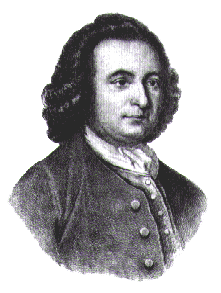 George Mason was the principal author of the Virginia Declaration of Rights.
George Mason was the principal author of the Virginia Declaration of Rights. The Declaration was adopted unanimously by the Fifth Virginia Convention at Williamsburg, Virginia on June 12, 1776 as a separate document from the Constitution of Virginia which was later adopted on June 29, 1776. In 1830, the Declaration of Rights was incorporated within the Virginia State Constitution as Article I, but even before that Virginia's Declaration of Rights stated that it was '"the basis and foundation of government" in Virginia. A slightly updated version may still be seen in Virginia's Constitution, making it legally in effect to this day.
Ten articles were initially drafted by George Mason circa May 20–26, 1776; three other articles were added in committee, seen in the original draft in the handwriting of Thomas Ludwell Lee, but the author is unknown. James Madison later proposed liberalizing the article on religious freedom, but the larger Virginia Convention made further changes. It was later amended by Committee and the entire Convention, including the addition of a section on the right to a uniform government (Section 14). Patrick Henry persuaded the Convention to delete a section that would have prohibited bills of attainder, arguing that ordinary laws could be ineffective against some terrifying offenders.
Mason based his initial draft on the rights of citizens described in earlier works such as the English Bill of Rights (1689) and the writings of John Locke. The Declaration can be considered the first modern Constitutional protection of individual rights for citizens of North America. It rejected the notion of privileged political classes or hereditary offices such as the members of Parliament and House of Lords described in the English Bill of Rights.
Edmund Pendleton proposed the line "when they enter into a state of society" which allowed slave holders to support the declaration of universal rights which would be understood not to apply to slaves as they were not part of civil society.
The Declaration consists of sixteen articles on the subject of which rights "pertain to [the people of Virginia] ... as the basis and foundation of Government." In addition to affirming the inherent nature of rights to life, liberty, property, and pursuing and obtaining happiness and safety, the Declaration both describes a view of Government as the servant of the people, and enumerates its separation of powers into the administration, legislature, and judiciary. Thus, the document is unusual in that it not only prescribes legal rights, but it also describes moral principles upon which a government should be run.
 RSS Feed
RSS Feed